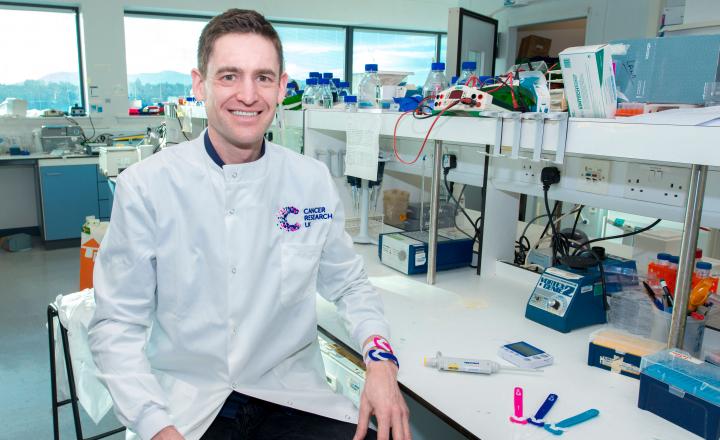Cancer Centre scientists link new gene to autophagy
A study led by Dr Simon Wilkinson from the CRUK Edinburgh Centre identifies cell-cycle progression gene 1 (CCPG1) as an autophagy gene: February 2018
Autophagy is the process by which cells “keep fit” by binning and recycling their old and damaged components. This process is hugely important for healthy ageing, so it is no surprise that the discovery of its mechanisms was honoured by the 2016 Nobel Prize in Physiology or Medicine. There is also accumulating evidence that autophagy plays important role in cancer and our scientists are heavily involved in cancer-related autophagy research.
In a recent study entitled “CCPG1 Is a Non-canonical Autophagy Cargo Receptor Essential for ER-Phagy and Pancreatic ER Proteostasis”, published in the journal Developmental Cell, a team led by Dr Simon Wilkinson from the Cancer Research UK Edinburgh Centre revealed that cell-cycle progression gene 1 (CCPG1) plays important role in selective autophagy of the endoplasmic reticulum (known as ER-phagy).
The team discovered that CCPG1 protects the digestive-enzyme producing cells of the pancreas from becoming stressed and dying off during ageing, preventing inflammation of the pancreas. Ccpg1 fulfils this role by producing a “caretaker” protein that acts to package up and dispose of damaged bits of the endoplasmic reticulum (ER), the manufacturing centre for digestive enzymes in pancreatic cells. These interesting findings might have implications for healthy ageing and cancer susceptibility and ongoing work in the laboratory aims to address this in detail.

Links
CCPG1 Is a Non-canonical Autophagy Cargo Receptor Essential for ER-Phagy and Pancreatic ER Proteostasis. DOI: https://doi.org/10.1016/j.devcel.2017.11.024
Simon Wilkinson’s Research Group

